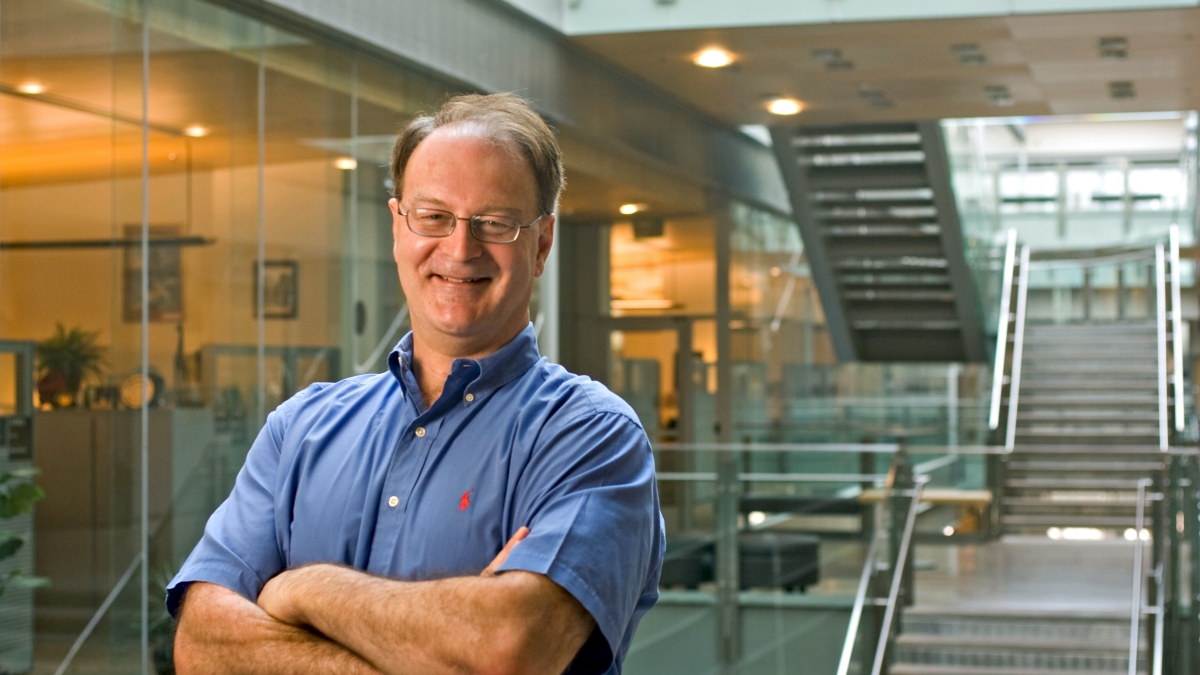Regents' Professor receives inaugural award for promoting interdisciplinary research

ASU Regents' Professor Bruce Rittmann flew across the Atlantic this week to accept an award of which he is the first winner: the 2014 ISME/IWA Bio Cluster Award.
"I am really, really thrilled about this," said Rittmann, who was honored Sept. 25, in Lisbon, Portugal, at the International Water Association Congress, for his outstanding leadership in promoting interdisciplinary research between the microbial ecology and the water and wastewater treatment fields.
The inaugural award is being jointly presented by the IWA, the leading water organization worldwide, and the International Society of Microbial Ecology (ISME).
"I'm thrilled about this because this joining of engineering with microbiology is what I do," said Rittmann. "It's what I've been doing for essentially my entire career."
Rittmann is an international leader in using microbes found in nature in innovative ways that can benefit the environment or human health. His research team tackles some of the world’s leading problems related to water, waste and energy. Their research projects include pollution cleanup, treating water and wastewater, capturing renewable energy, and understanding how microbes in the digestive system may be linked to obesity and autism, as well as other efforts.
Rittmann’s research focuses on the scientific and engineering fundamentals needed to manage microbial communities to provide services to society.
“It’s individual organisms comprising a community that’s working together,” said Rittmann. “And now we have a chance to really manage that community to get the right organisms doing the right job.”
His research team developed the membrane biofilm reactor, a technology now being commercialized to destroy a wide range of pollutants found in waters and wastewaters. This technology can remove harmful contaminants such as perchlorate, nitrates, and arsenate from water and soils – problems that are vital to the future of the Southwest, where Colorado River water is used by seven states. Rittmann is also part of an ASU research team using two innovative approaches to renewable bioenergy: harnessing anaerobic microbes to convert biomass to useful energy forms, such as methane, hydrogen, or electricity; and using photosynthetic bacteria or algae to capture sunlight and produce new biomass that can be turned into liquid fuels, like biodiesel.
Most of the services make our society more environmentally sustainable: e.g., generating renewable energy, and making polluted water and soil clean. The microbial services also make humans healthier – directly and indirectly.
Rittmann and colleagues were the first to link the modern tools of molecular microbial ecology to understanding and improving the performance microorganism-based water technologies. Researchers in the Swette Center apply the most advanced tools of molecular microbial ecology, chemistry, microscopy, and mathematical modeling to think like the microorganisms and, in turn, create systems that allow the microorganisms to provide beneficial services ranging from sustainable environmental processes, to nutrient and energy recovery, to making humans healthier.
Rittmann is a member of the U.S. National Academy of Engineering, a Distinguished Member of the American Society of Civil Engineers, and a Fellow of the American Association for the Advancement of Sciences, the International Water Association, and the Water Environment Federation.